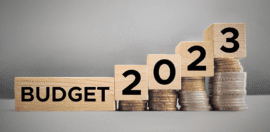Tax the rich to ease inequality: Oxfam

16 January 2023 at 11:01 am
Australia’s tax system is broken and entrenches inequality, according to a major global charity.
A new report published by Oxfam reveals how we can reduce inequality around the world: tax the mega-rich.
Called Survival of the Richest and released ahead of the opening of the World Economic Forum in Davos, the report shows that extreme wealth and extreme poverty have increased simultaneously for the first time in a quarter of a century.
According to the analysis, the richest 1 per cent of Australians have accumulated 10 times more wealth than the bottom 50 per cent over the last decade.
The wealth of Australia’s billionaires is now 61 per cent higher compared to before the pandemic, and there are 11 more billionaires today than there were in 2020.
See more: Australia’s mega-rich don’t give enough: report
The pattern is repeated across the globe; over the past decade, the richest 1 per cent of people have amassed more than half of new global wealth. Since 2020, that’s increased to almost two-thirds of all new wealth, six times more than the bottom 90 per cent of the world’s population.
At the same time, at least 1.7 billion workers worldwide live in countries where inflation outpaces wages.
The solution is tax
The report states that multiple crises around the world are contributing to the inequality gap, including COVID-19, the climate crisis, the war in Ukraine, and high levels of inflation. Together, these are called the “polycrisis”.
It suggests a tax on the global mega-rich to “set us clearly on the path to a more equal, sustainable world free of poverty.”
See more: Global millionaires call on governments to tax them more
Speaking to Pro Bono News, Oxfam Australia’s director of programs Anthea Spinks said the Australian and global tax systems are “driving inequality and driving the gap between the richest and the poorest faster than we’ve seen in the last number of decades… keeping people entrenched in poverty in Australia.
“This report, more than ever, is really calling on us to tax the rich… to support those living in poverty and inequality,” Spinks said.
According to the report, there has been “a general trend towards lower taxes for the rich” across the world, and for every $1 of tax raised, only four cents come from taxes on wealth.
The report calls a tax on rich people and corporations “the exit door for today’s polycrisis”.
“Greater taxation… can avert austerity, it can be used to fight inflation and higher prices, and it can avoid the unnecessary cruelty of mass destitution and hunger. Greater taxation is a precondition for successful, strategic governments, giving them the resources to invest in universal healthcare and education; happier, healthier societies; innovation, research and development; the transition to green economies; and stopping climate breakdown,” the report says.
Oxfam is calling on the Australian government to scrap the stage three tax cuts, and to instead implement a systemic and wide-ranging increase in taxation of the super-rich, including a wealth tax and a windfalls tax on corporations, which would claw back gains some companies have made on the back of crises and suffering, such as the pandemic and the war in Ukraine.
The charity suggests a wealth tax of two per cent on Australians with a wealth above $7 million, three per cent for wealth above $67 million, and five per cent on Australian billionaires.
With the money raised from these measures, Australia could increase its foreign aid budget by seven times, or raise the rate of income support payments to $88 a day and build 36,000 social housing homes each year.
Spinks said it was important to note that Oxfam was not taking issue with wealthy individuals themselves.
“We know there are very, very many generous millionaires and billionaires in Australia and globally, so there are a large number of people that are using some of this wealth and supporting organisations to do good and to have an impact in the world,” she said.
“The issue really is with the system that enables these… super wealthy individuals to profit from a broken tax system. And that’s what we’re really calling on the Australian Government to fix.
“Governments are very aware of the need to eliminate poverty. If we don’t implement change, we’re actually possibly going to see this discrepancy and this acceleration of super wealth and super profits flow and more people fall back into poverty and the inequality gap… grow even further. The sensible thing to do is to make policy change.”







